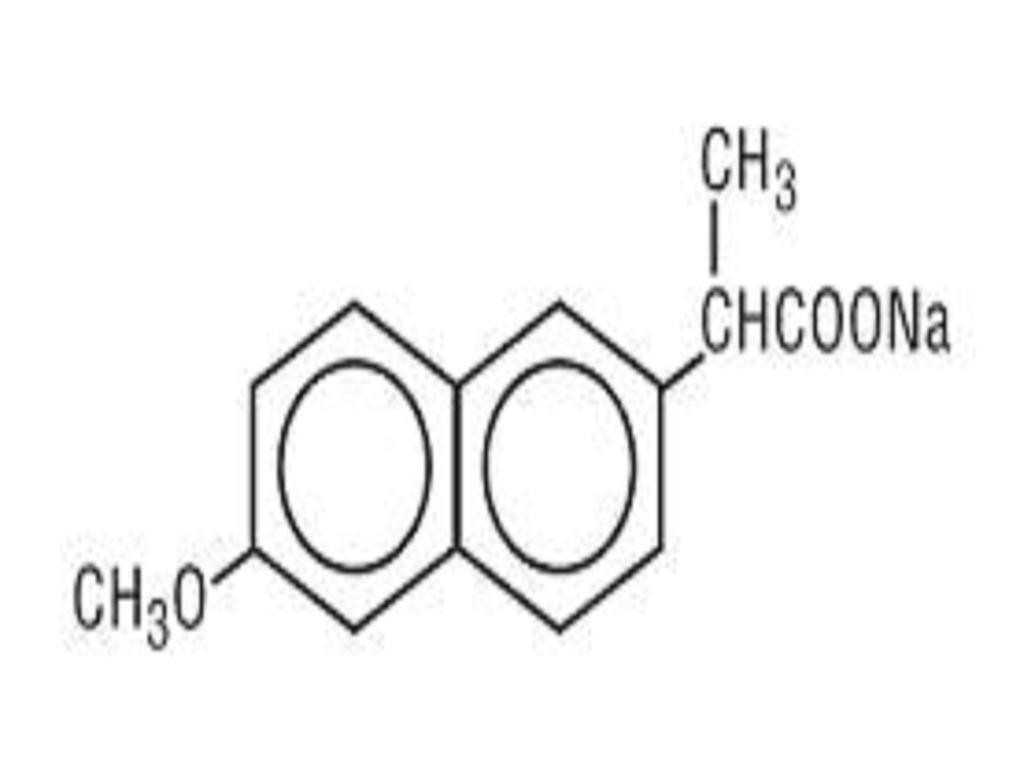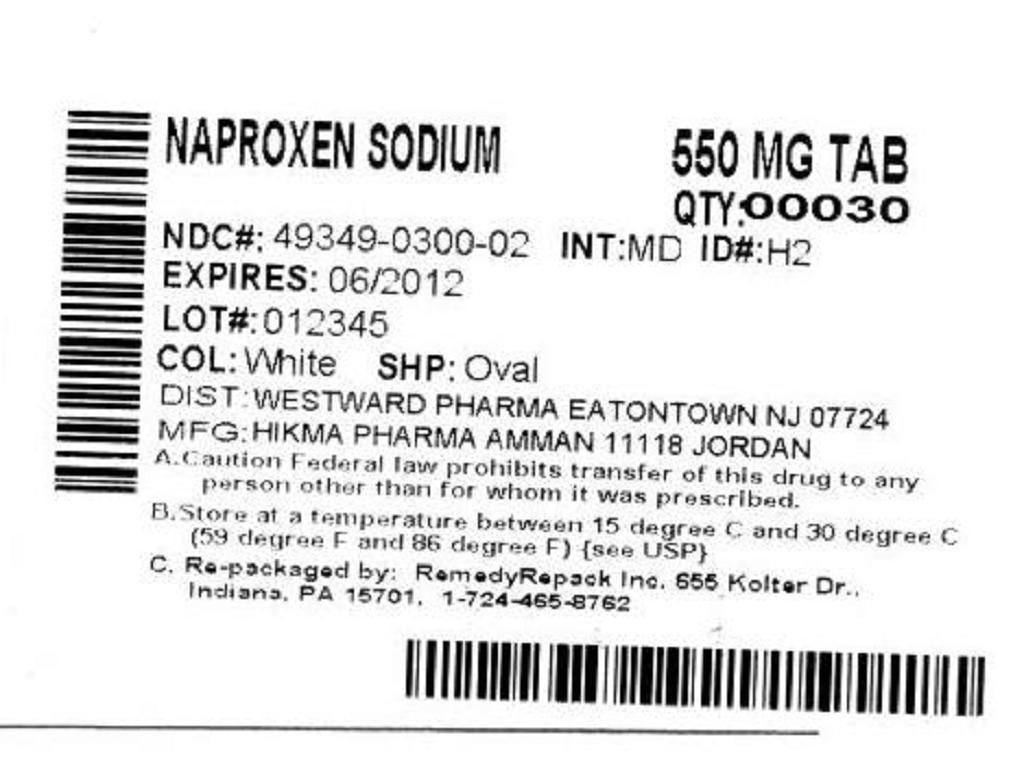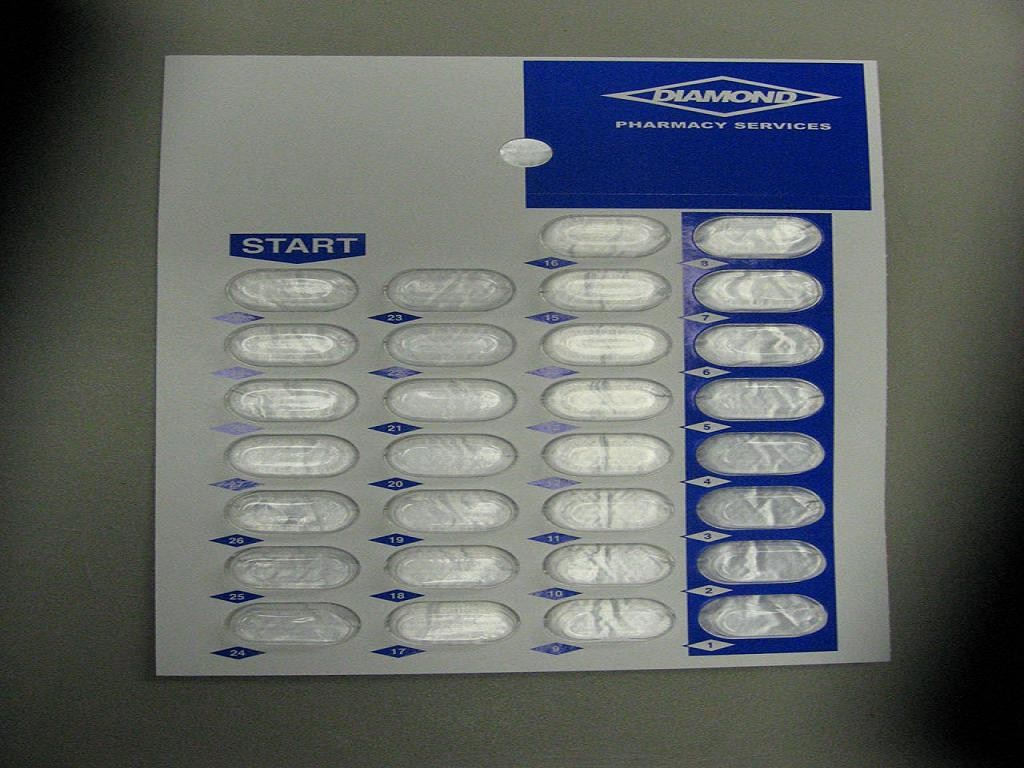Naproxen Sodium
FULL PRESCRIBING INFORMATION: CONTENTS*
- BOXED WARNING
- NAPROXEN SODIUM DESCRIPTION
- CLINICAL PHARMACOLOGY
- PHARMACODYNAMICS
- PHARMACOKINETICS
- CLINICAL STUDIES
- INDICATIONS & USAGE
- NAPROXEN SODIUM CONTRAINDICATIONS
- WARNINGS
- PRECAUTIONS
- INFORMATION FOR PATIENTS
- LABORATORY TESTS
- DRUG INTERACTIONS
- DRUG & OR LABORATORY TEST INTERACTIONS
- CARCINOGENESIS & MUTAGENESIS & IMPAIRMENT OF FERTILITY
- PREGNANCY
- LABOR & DELIVERY
- NURSING MOTHERS
- PEDIATRIC USE
- GERIATRIC USE
- NAPROXEN SODIUM ADVERSE REACTIONS
- OVERDOSAGE
- DOSAGE & ADMINISTRATION
- HOW SUPPLIED
- STORAGE AND HANDLING
- SPL MEDGUIDE
- PACKAGE LABEL.PRINCIPAL DISPLAY PANEL SECTION
FULL PRESCRIBING INFORMATION
BOXED WARNING
-
● NSAIDs1 may cause an increased risk of serious cardiovascular thrombotic events, myocardial infarction, and stroke, which can be fatal. This risk may increase with duration of use. Patients with cardiovascular disease or risk factors for cardiovascular disease may be at greater risk (see WARNINGS).
-
● Naproxen sodium tablets are contraindicated for the treatment of peri-operative pain in the setting of coronary artery bypass graft (CABG) surgery (see WARNINGS).
-
● NSAIDs cause an increased risk of serious gastrointestinal adverse events including bleeding, ulceration, and perforation of the stomach or intestines, which can be fatal. These events can occur at any time during use and without warning symptoms. Elderly patients are at greater risk for serious gastrointestinal events (see WARNINGS).
NAPROXEN SODIUM DESCRIPTION

CLINICAL PHARMACOLOGY
PHARMACODYNAMICS
PHARMACOKINETICS
Absorption
Immediate release
Distribution
Metabolism
Excretion
Special Populations
Pediatric patients
Geriatric patients
Race
Hepatic insufficiency
Renal insufficiency
CLINICAL STUDIES
General InformationGeriatric Patients
INDICATIONS & USAGE
-
● For the relief of the signs and symptoms of rheumatoid arthritis
-
● For the relief of the signs and symptoms of osteoarthritis
-
● For the relief of the signs and symptoms of ankylosing spondylitis
-
● For the relief of the signs and symptoms of juvenile arthritis
-
● For relief of the signs and symptoms of tendonitis
-
● For relief of the signs and symptoms of bursitis
-
● For relief of the signs and symptoms of acute gout
-
● For the management of pain
-
● For the management of primary dysmenorrhea
NAPROXEN SODIUM CONTRAINDICATIONS
WARNINGS
CARDIOVASCULAR EFFECTSCardiovascular Thrombotic Events
Hypertension
Congestive Heart Failure and Edema
Gastrointestinal EffectsRisk of Ulceration, Bleeding, and Perforation
Renal Effects
Advanced Renal Disease
Anaphylactoid Reactions
Skin Reactions
Pregnancy
PRECAUTIONS
GeneralHepatic Effects
Hematological Effects
Preexisting Asthma
INFORMATION FOR PATIENTS
LABORATORY TESTS
DRUG INTERACTIONS
ACE-InhibitorsAntacids and Sucralfate
Aspirin
Cholestyramine
Diuretics
Lithium
Methotrexate
Warfarin
Selective Serotonin Reuptake Inhibitors (SSRIs)
Other Information Concerning Drug Interactions
DRUG & OR LABORATORY TEST INTERACTIONS
CARCINOGENESIS & MUTAGENESIS & IMPAIRMENT OF FERTILITY
PREGNANCY
Teratogenic EffectsPregnancy category C
Nonteratogenic Effects
LABOR & DELIVERY
NURSING MOTHERS
PEDIATRIC USE
GERIATRIC USE
NAPROXEN SODIUM ADVERSE REACTIONS
OVERDOSAGE
Symptoms and SignsTreatment
DOSAGE & ADMINISTRATION
Geriatric Patients
Patients With Moderate to Severe Renal Impairment
Rheumatoid Arthritis, Osteoarthritis and Ankylosing Spondylitis
Juvenile Arthritis
Management of Pain, Primary Dysmenorrhea, and Acute Tendonitis and Bursitis
Acute Gout
HOW SUPPLIED
STORAGE AND HANDLING
SPL MEDGUIDE
-
● with longer use of NSAID medicines
-
● in people who have heart disease
-
● can happen without warning symptoms
-
● may cause death
-
● taking medicines calledcorticosteroidsandanticoagulants
-
● longer use
-
● smoking
-
● drinking alcohol
-
● older age
-
● having poor health
-
● exactly as prescribed
-
● at the lowest dose possible for your treatment
-
● for the shortest time needed
-
● different types of arthritis
-
● menstrual cramps and other types of short-term pain
-
● if you had an asthma attack, hives, or other allergic reaction with aspirin or any other NSAID medicine
-
● for pain right before or after heart bypass surgery
-
● about all of your medical conditions.
-
● about all of the medicines you take. NSAIDs and some other medicines can interact with each other and cause serious side effects. Keep a list of your medicines to show to your healthcare provider and pharmacist.
-
● if you are pregnant. NSAID medicines should not be used by pregnant women late in their pregnancy.
-
● if you are breastfeeding. Talk to your doctor.
-
● shortness of breath or trouble breathing
-
● chest pain
-
● weakness in one part or side of your body
-
● slurred speech
-
● swelling of the face or throat
-
● nausea
-
● more tired or weaker than usual
-
● itching
-
● your skin or eyes look yellow
-
● stomach pain
-
● flu-like symptoms
-
● vomit blood
-
● there is blood in your bowel movement or it is black and sticky like tar
-
● unusual weight gain
-
● skin rash or blisters with fever
-
● swelling of the arms and legs, hands and feet
-
● Aspirin is an NSAID medicine but it does not increase the chance of a heart attack. Aspirin can cause bleeding in the brain, stomach, and intestines. Aspirin can also cause ulcers in the stomach and intestines.
-
● Some of these NSAID medicines are sold in lower doses without a prescription (over-the-counter). Talk to your healthcare provider before using over-the-counter NSAIDs for more than 10 days.
PACKAGE LABEL.PRINCIPAL DISPLAY PANEL SECTION


Naproxen SodiumNaproxen Sodium TABLET
| ||||||||||||||||||||||||||||||||||||||||||||||||||||||||||||||||||||||||||||||||||
PLEASE, BE CAREFUL!
Be sure to consult your doctor before taking any medication!